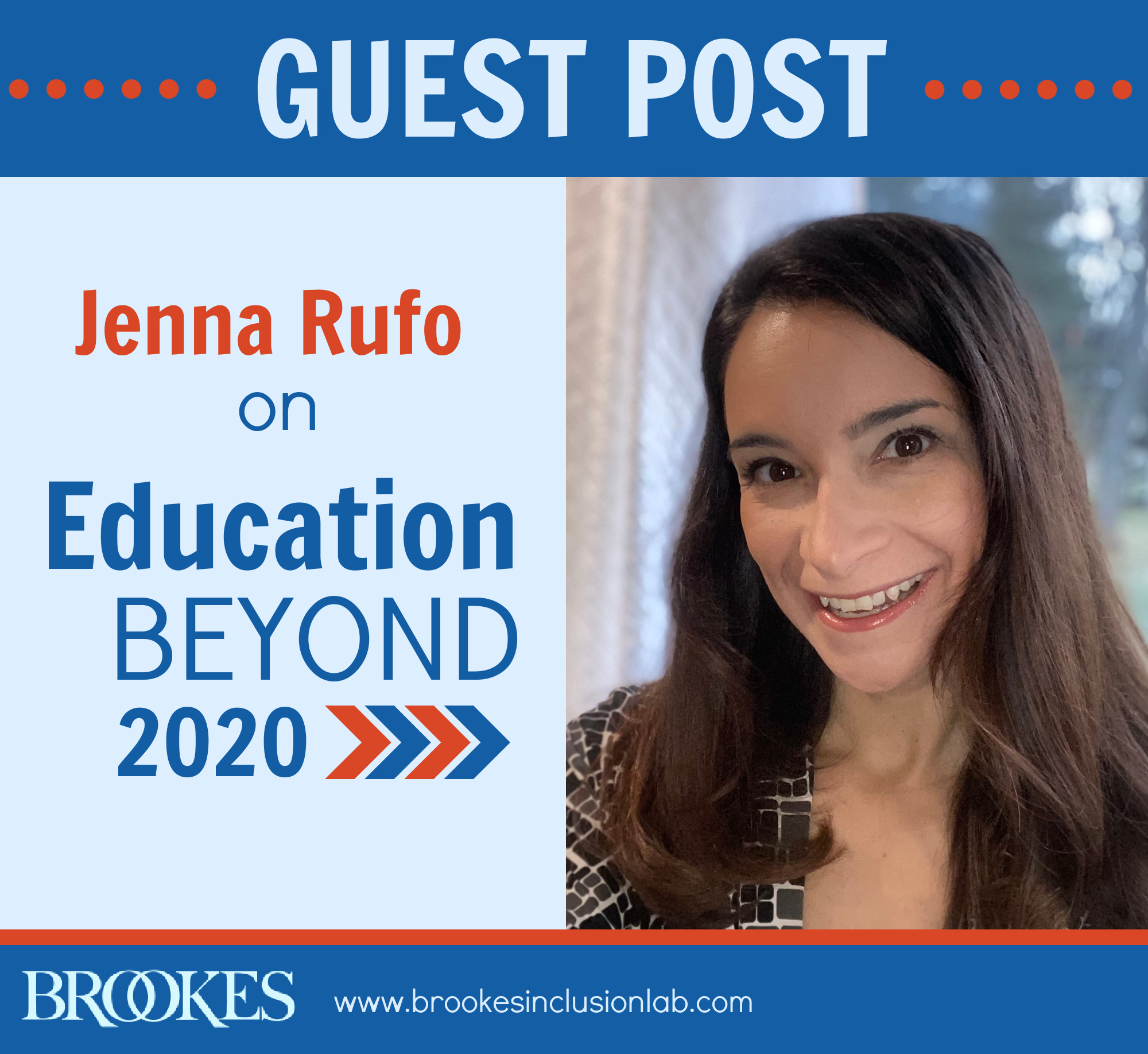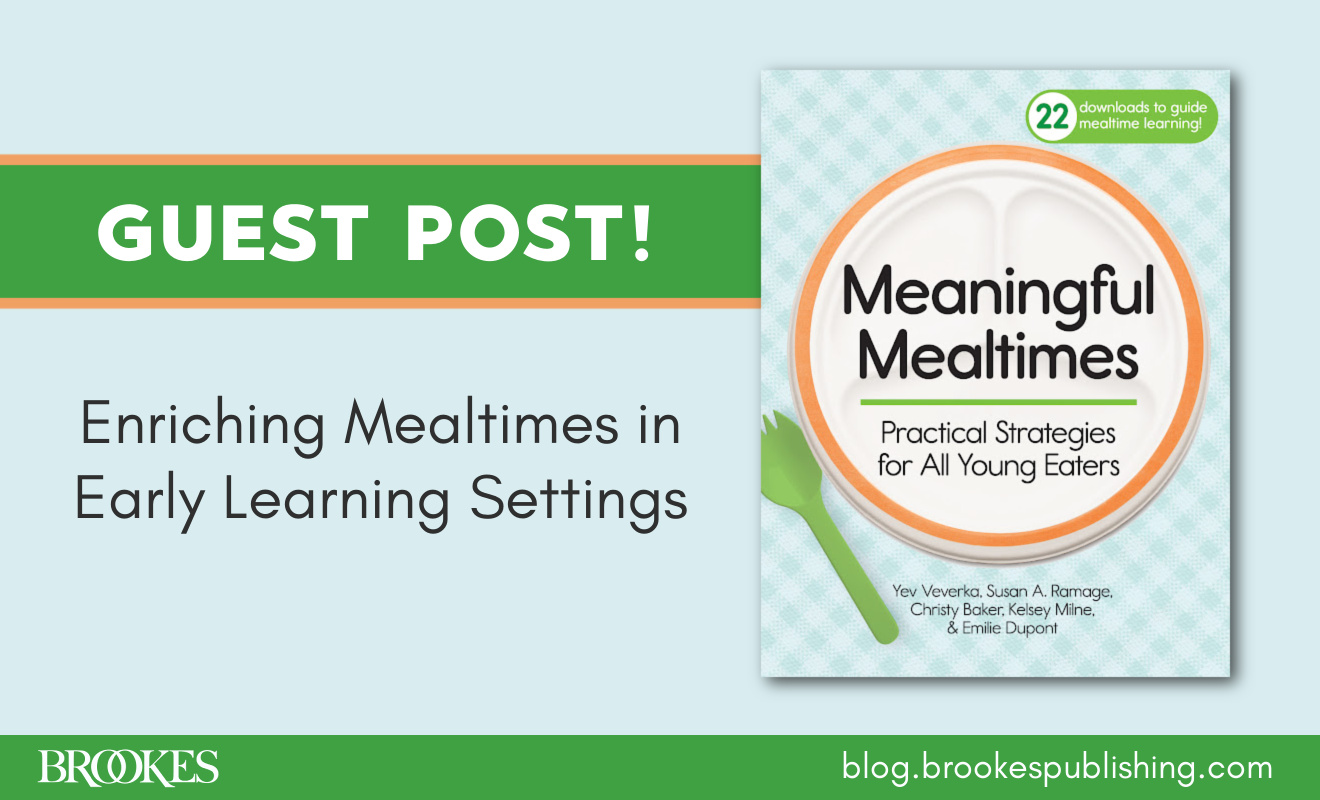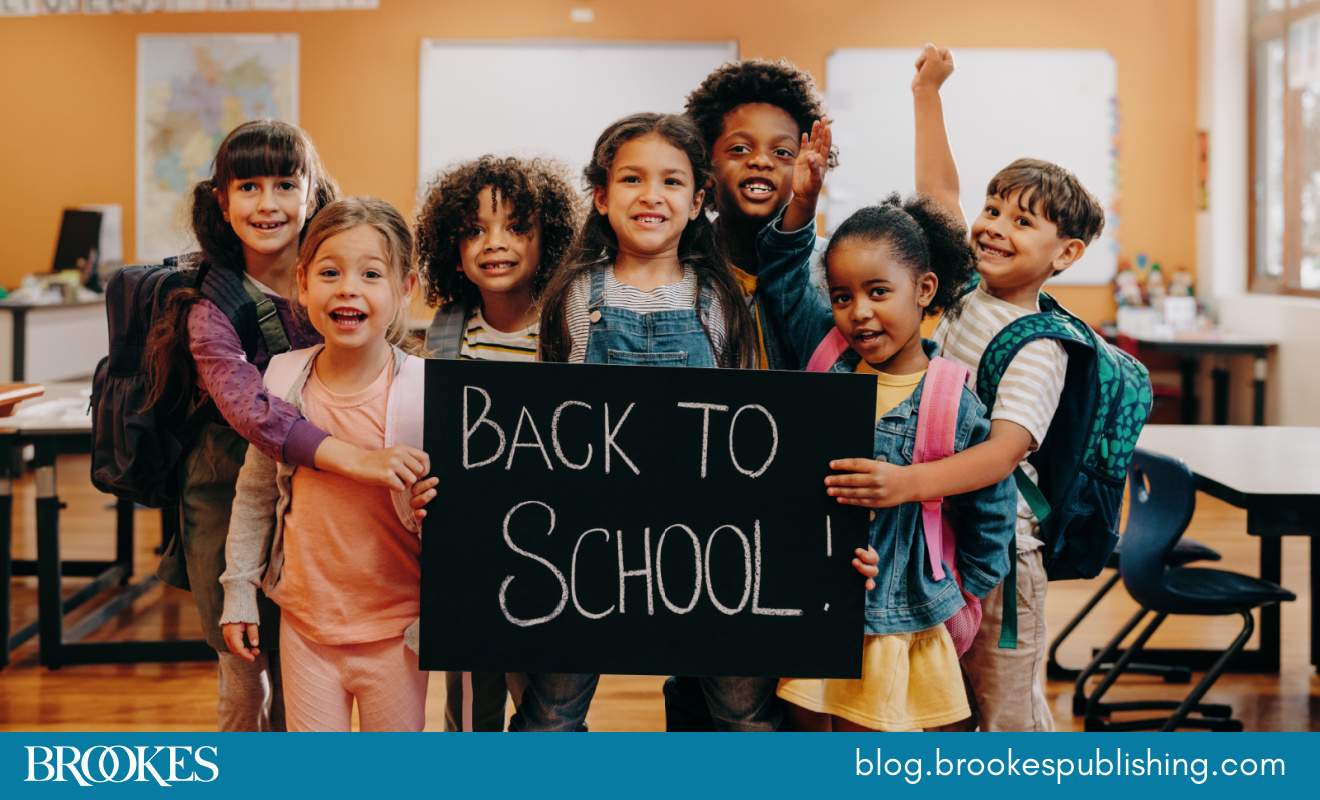Education Beyond 2020: Everything Happens for a Reason? Nope.
February 2, 2021
2020 challenged both educators and families in ways we never anticipated, and we’ll feel its reverberations long after the pandemic fades. Serious issues—some created by the events of the past year, others simply exposed and amplified by it—will demand real solutions. Student and teacher trauma. Racial injustice. Unequal access to technology and other resources.
In the wake of COVID-19, the best schools and districts will seize new opportunities to reimagine their practices and create learning environments that meet the needs of every student. That’s what today’s guest post is all about. Brookes author Jenna Mancini Rufo, Ed.D., is here to talk about the lessons learned during 2020—and how they can help us reshape our schools in better and more inclusive ways. Dr. Rufo and Dr. Julie Causton have teamed up on a visionary new guidebook called Reimagining Special Education, and this post will give you a brief preview of the kinds of insights you’ll find in its pages.
***
I’m not one who subscribes to the “everything happens for a reason” philosophy. I just can’t conceive that all the horrors and injustices in the world were meant to be. Such an ideology is both too cruel and too hands-off a dogma for me. I do believe, however, that we can learn something from every experience. With that in mind, what are we to make of the series of catastrophes that represented 2020? What lessons have we learned that will help us redesign education in newer and better ways?
Here are my takeaways…
Let’s stop talking about equity in education and actually do something about it. This past year laid bare the inequities that have been present in our system of schooling for quite some time. It is no secret that we have underserved students of color, those from low socioeconomic households, students with disabilities, and those with languages and cultures who differ from the majority. Why then are we surprised that these students are struggling now more than ever in remote or hybrid learning environments? It is convenient to blame their struggles on COVID-19, limited internet access, or lack of parental support in an online learning environment, but maybe we need to look within.
Programs that level, track, separate, and segregate perpetuate a system of marginalization. The coronavirus has only amplified the problems resulting from such structures. Once and for all, let’s dismantle exclusionary practices. If we choose to use the pandemic as a scapegoat for the poor performance of marginalized groups, “equity” is simply another trendy buzzword in education.
Make choices that strengthen relationships rather than tear them apart. Our schools are a reflection of society at large and the polarization we see in this country has spilled over into our education system. While we as adults are busy arguing over politics, the coronavirus, racial injustice, and the best way to educate students during a pandemic, our children are watching and they are hurting. As the grown-ups here, it is our responsibility to model the behaviors we wish to see in children. We must invest in relationships and prioritize kindness. We must create spaces where children feel safe and respected. How can we possibly do this for students when we can’t do it for one another?
In an insightful interview, Paul LeBlanc, President of Southern New Hampshire University, reflected on students in higher education, stating, “This [time] is about taking care of people who are absolutely traumatized. We took the generation of learners with the highest record of depression and anxiety, and we added a pandemic and a recession…This is about dialing up compassion.” LeBlanc’s statement holds true for K-12 education as well. In 2021 and beyond, let us act with empathy and understanding, both for our students and for each other.
Use technology for innovation rather than substitution. Schools have been operating in crisis mode for the duration of 2020. The initial dilemmas of transferring a brick and mortar system to online learning were replaced shortly thereafter with problems of social distancing, mask-wearing, and safety protocols upon a return to school. It is understandable then, why many school systems attempted to merely replicate in-person learning in online formats – there was just too much else that took priority first.
Now, however, we have an opportunity to leverage our digital tools to their fullest potential. Let’s shift our perspective to view technology as a platform that elevates learning rather than utilizing it as a flashy substitute for current practices. A worksheet in Google Slides is still a worksheet. A screencast of a powerpoint remains a lecture. If we are being honest with ourselves, these practices didn’t work well in their original format so why are we replicating them digitally? Let’s embrace creativity and lean in to opportunities for innovation.
Move out of crisis and into transformation. It is time to move out of emergency management and into transformation. Despite decades, even centuries, of calls for change, our education system has remained largely immutable. So instead of getting back to business as usual, let’s recognize instead that we can do better.
We can rethink how our systems operate. We can question if “the way it’s always been done” is really the right way to do it. We can reject practices that keep some students thriving and others struggling. We can invest in relationships built on a foundation of kindness and understanding. We can use technology to truly transform learning rather than as a substitute for existing practices.
We can reshape and reimagine education to fulfill its potential of creating a stronger society.
We can do all this…or not. Because everything doesn’t just happen. People make things happen. And if 2020 has taught us anything, it is that we are capable of changing and adapting in rapid ways that are much faster than anyone could have anticipated. We can change. We can learn. We can do better. If we don’t, 2020 was for naught.
***
If you liked this guest blog post, and you’re ready to rethink education in 2021 and beyond, there’s much more practical guidance in Dr. Rufo and Dr. Causton’s book, Reimagining Special Education. Click the link below to learn more about the book!
EXPLORE THE BOOK
About the Author
Jenna Mancini Rufo, Ed.D., is the founder and owner of empowerED School Solutions, an education consulting firm specializing in inclusion and equity. Having served as a former Assistant Superintendent, Director of Special Education, State Policy Specialist, Special Education Teacher, and Inclusion Facilitator, Jenna has practical experience in leading systems change for inclusion. She has shared her knowledge at numerous events including The Atlantic’s Education Summit and the National Principals’ Conference. She has been published in School Administrator and is the coauthor of Reimagining Special Education.




Write a Comment
Your email address will not be published. Required fields are marked *
Post a Comment